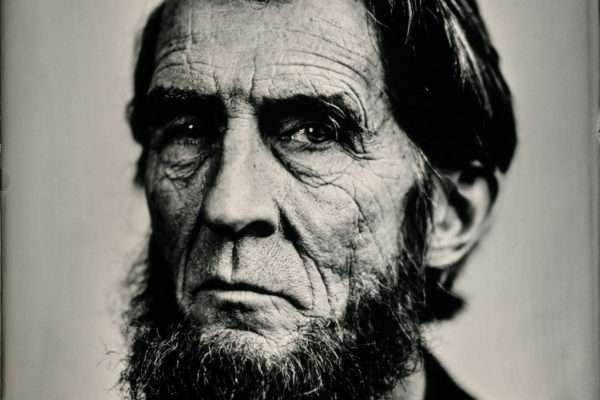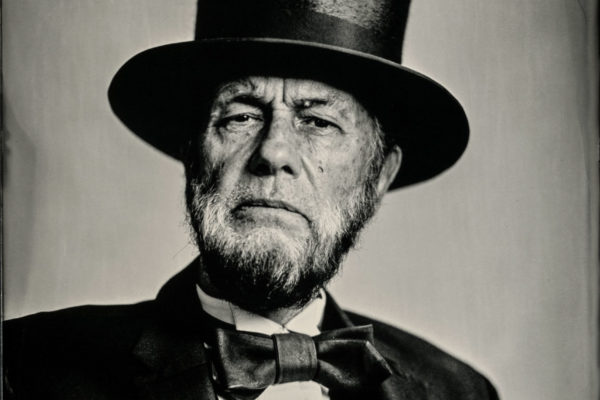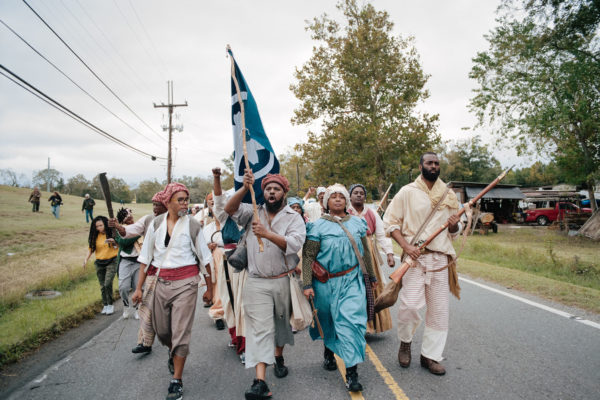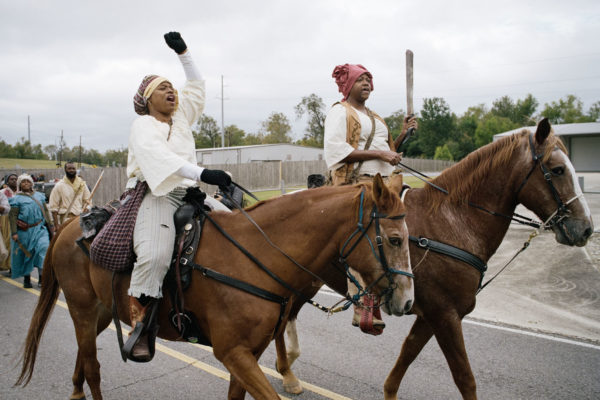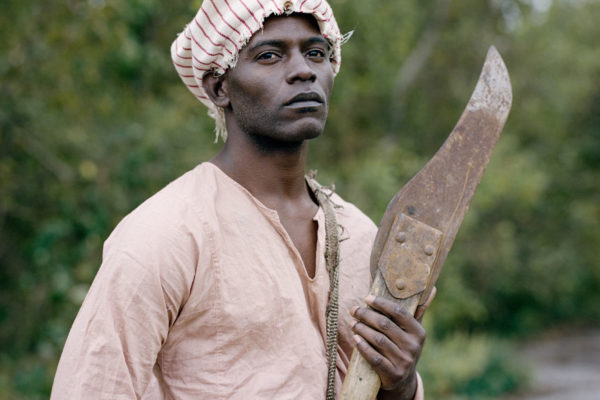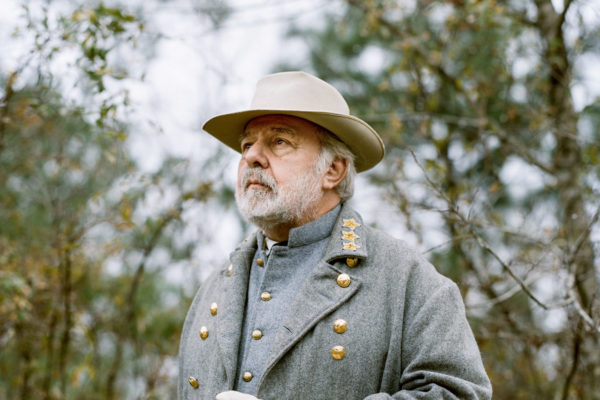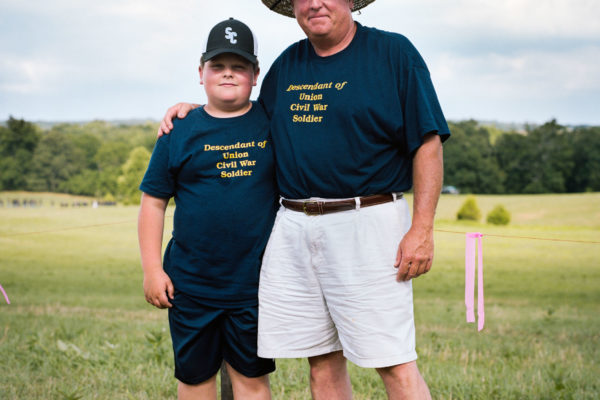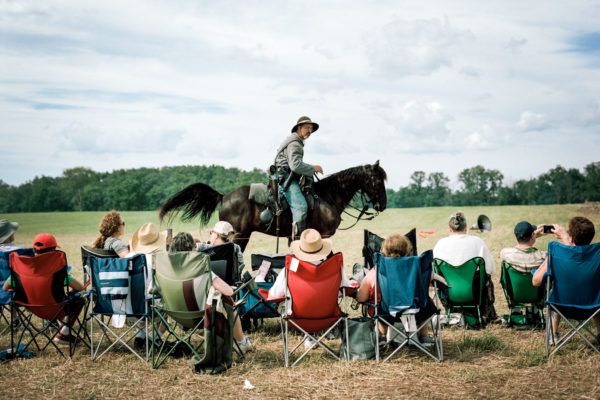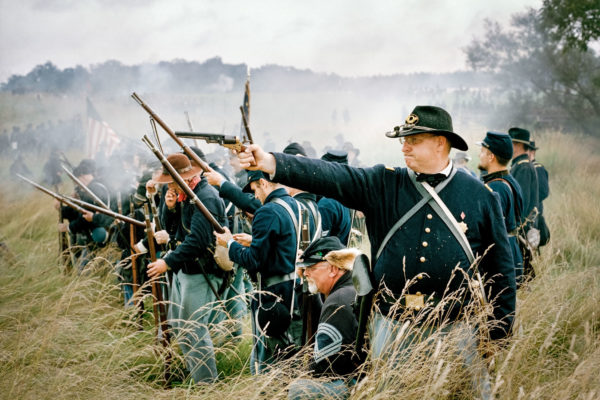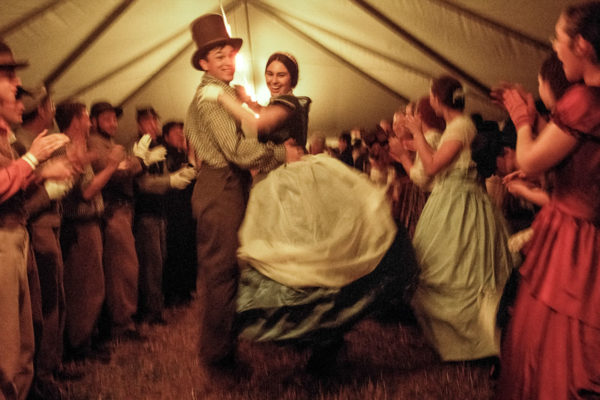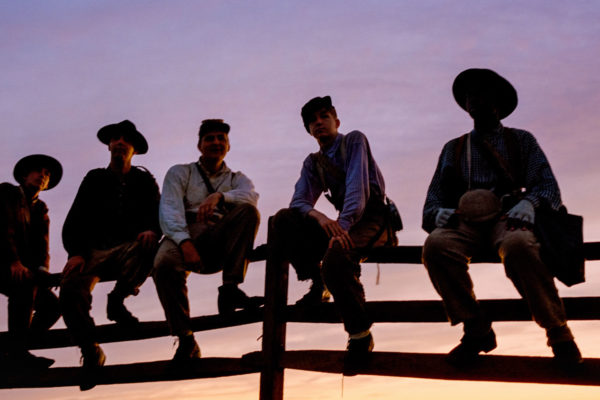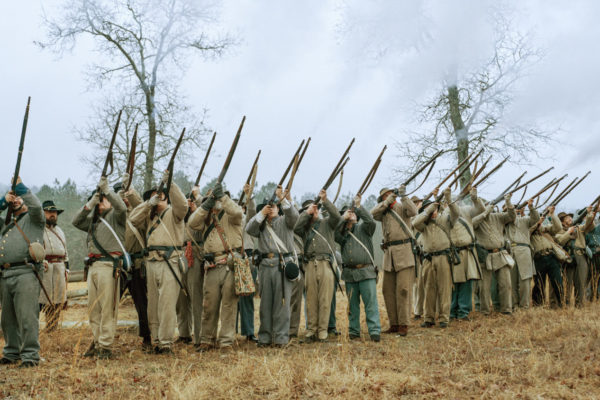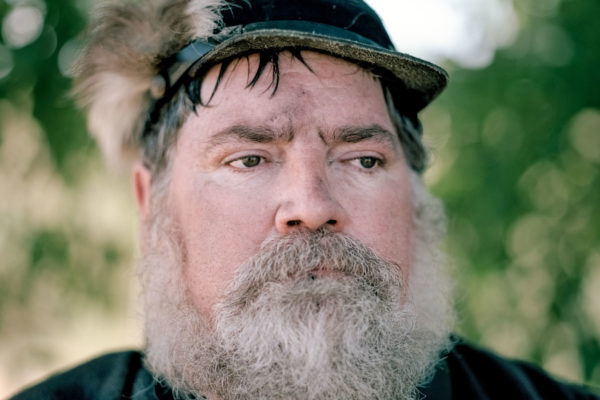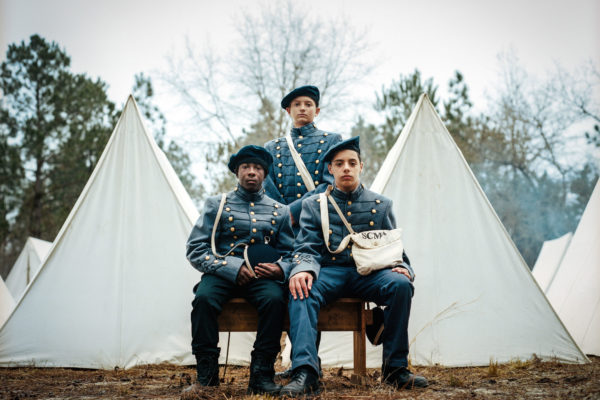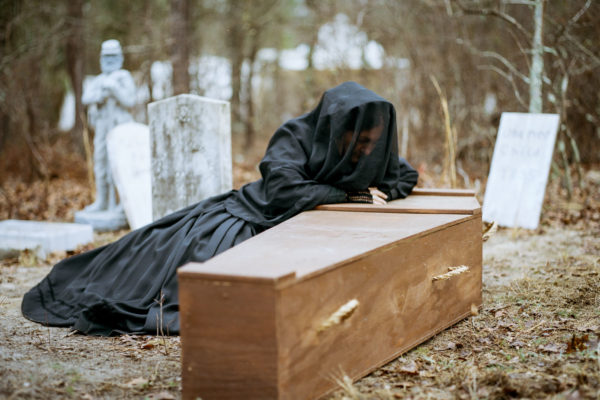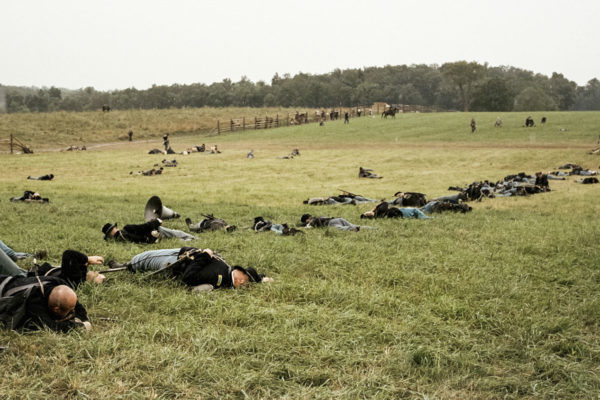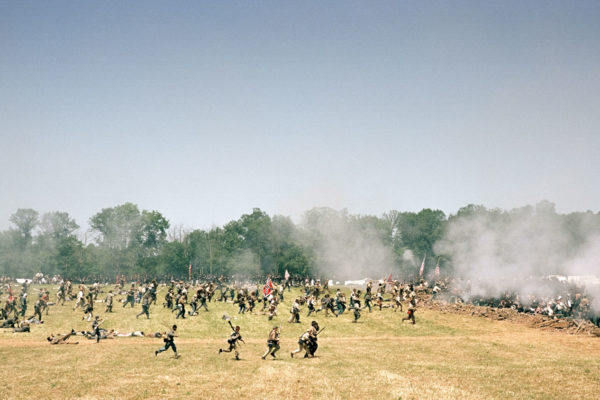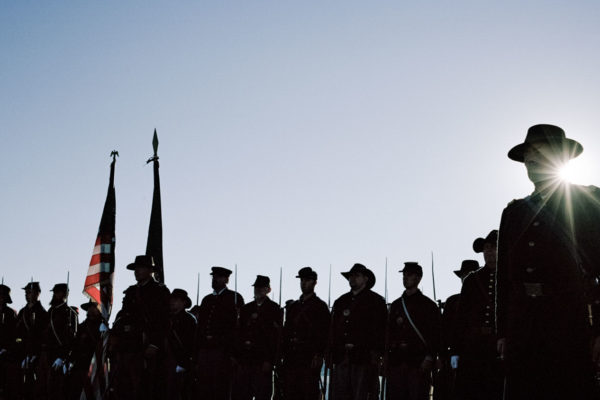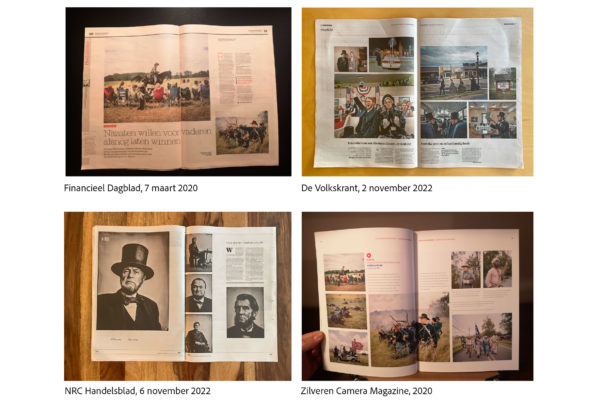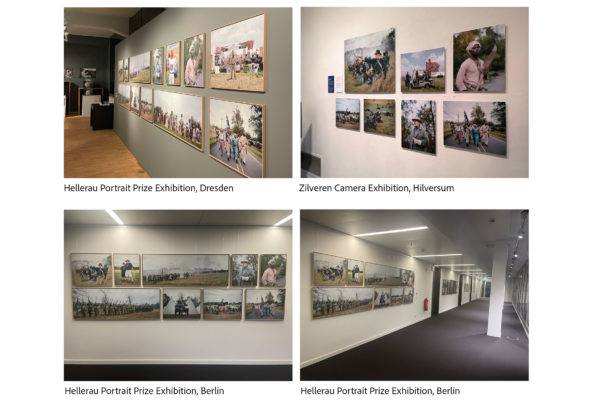Abstract of the accomplished photographic work
Living History shows how different groups of Americans, each armed with their own version of the past, deal with the history of the American Civil War and the legacy of slavery through re-enactment.
Who decides what our national history is? How do we deal with a nations dark past? To whom do we listen, and to whom do we not?
As soon as the Civil War ended, veterans organized re-enactments to rebuild national unity between the former Confederacy and Union states. Today thousands of highly motivated ‘living historians’ live out their version of what it must have been like to live and fight during ‘the war that forged the nation’. It is their way of being in touch with their ancestry and history.
“The Civil War is like a ghost that has not yet made its peace and roams the land seeking solace, retribution and vindication.” – David Goldfield
Exhibition images
Description of the project you intend to pursue through the Prize
The American history of genocide, slavery, and oppression has literally been inscribed onto the map. Landscapes across ‘the land of the free’ bear witness to this dark history through their place names; Dead N****r Creek, Mulatto Bayou, Squaw Tits, Savage Lake, Wetback Tank and Dago Lake.
These landscapes exist as living archives, natural places that have involuntarily carried these names, and their ideologies, for centuries. Like thousands of time capsules in which the past is recorded, they reveal the persistent legacy that white supremacy has imposed on society.
This project portrays these problematic landscapes through monumental yet not over-romanticized photography, archival and cartographic research, and collaborative testimonies from affected communities, interrogating how historical injustices become embedded in the landscape. These elements will be combined in a book in the style of an Atlas, referencing the important role maps and placenames had in the colonial project.

